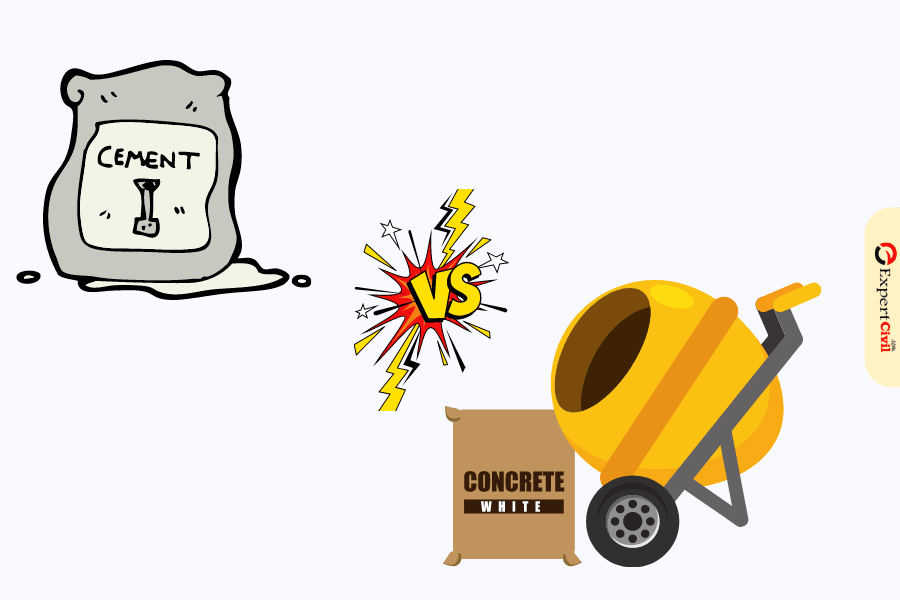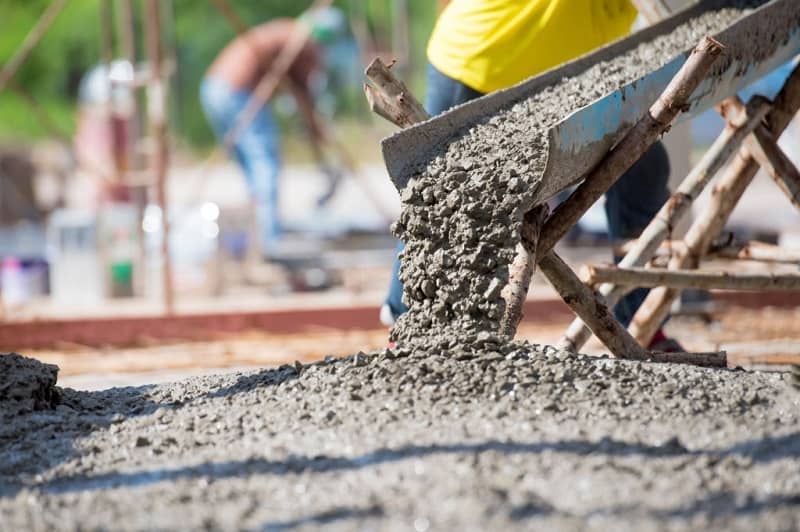The terms cement vs concrete are confusing, especially with so many brands of mixes. Some people use the word concrete when they mean cement, and vice versa. Is there even a difference? Let us first understand and get to know what cement and concrete mean.

What is Cement?
Cement is the most basic and indispensable material in the construction industry. It is a greenish-grey powder made of calcareous materials like limestone and chalk and argillaceous ones like clay. Due to its adhesive property, cement is used in binding mortar in building materials.

What is Concrete?
Concrete is a product used as a building material that emanates from the blend of cement and other chemically inert aggregates (such as sand, crushed stone brick chips, e.t.c), water and admixtures. Concrete is also the most universally used man-made material on the planet.

Difference Between Cement and Concrete
While cement can be used on its own, it is primarily used as an ingredient in concrete. Concrete, of course, is the ubiquitous building material found all over the world in roads, bridges, dams, sidewalks, and backyard patios.
Cement
Definition: Cement acts as an adhesive or bonding material. Without the use or existence of cement, concrete can not be made.
Uses: Because of its essential binding properties, cement is used as a chief ingredient in concrete, mortar, blocks, and other building materials in which it holds the other components together. Since the cement is an incredible adhesive, it is used to hold various construction materials together, such as tiles, bricks, etc. Additionally, cement is used in sealants and grouts.
Composition: Cement comprises different ingredients: Lime, Alumina, Silica, Iron oxide, Magnesia, Calcium Sulfate, Sulphur, and Alkaline.
Properties: The best quality cement produces a good end product. Henceforth, cement must possess the ensuing physical and chemical properties.
The Fundamentals of Cement
Cement is a binder manufactured from a mixture of iron, aluminum, silicon, calcium, and some more substances that are found in limestone, shells, chalk, clay, iron ore, and silica sand. These “components” are heated to an extreme temperature to create a rock-like substance that is ground into an extremely fine powder—cement. Cement is then mixed with water and aggregate to form concrete.
- Modern cement was invented in the kitchen of an English bricklayer in the early 19th century.
- Cement can be mixed with water and used as grout.
- Cement can be combined with plaster and water and applied to masonry surfaces to create a smooth surface.
Also Read: Complete Guide on Consistency of cement
Concrete
Definition: Concrete consists of aggregates of coarse and fine sizes, and binding materials such as asphalt, cement, and water.
Uses: The construction industry has long been contingent on concrete as a building material. Its distinctive characteristics such as strength, low maintenance, energy efficiency, durability, and sustainability, have become even more prominent.
Composition: In concrete, stones, sand, and cement are used as aggregates. Cement, lime, and asphalt are used as admixtures to bind the aggregates. Sometimes admixtures are used to control settlement time.
Properties: Because concrete is the most often used construction material, understanding its important qualities is critical when constructing a concrete structure. The following are some of the most important properties of concrete.
The Fundamentals of Concrete
Concrete is a mixture of cement, aggregate, and water. Globally, concrete is among the most widely used construction materials in both residential and commercial applications. Its appeal includes the fact that the components to make it are almost universally available as well as its strength and durability that make it a practical and desirable building material.
- Aggregates such as sand, stone, and gravel make up about 75% of concrete.
- The water used to create concrete must be very clean, even drinkable.
- The aggregate materials, too, must be very clean, because any contamination of organic materials can compromise the strength of the concrete.
Conclusion
Cement is not stronger than concrete. On its own, cement is prone to cracking. When combined with aggregate materials and water and allowed to harden, however concrete is extraordinarily strong.
Also Read: How to calculate cement sand and aggregate

Leave a comment